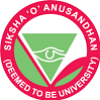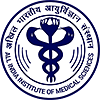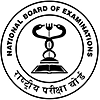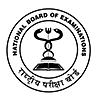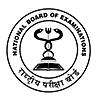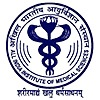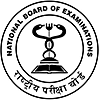MS Ophthalmology Syllabus and Subjects

The MS Ophthalmology syllabus can be divided into four semesters. It covers topics such as Orbital and Ocular Anatomy, Gross anatomy, Histology, Ocular Physiology, Ocular Pathology, Biochemistry, Microbiology and Immunology concerning Ocular Immunology, etc., along with a vast choice of electives. The course, along with core subjects in the semester, even includes other specializations for further skill development.
Semester wise MS Ophthalmology Syllabus
The MS Ophthalmology course consists of core and elective subjects and depending on the university/college, and they may differ slightly. It has two parts -a compulsory set of courses covering all foundation areas in Medical Science and a set of elective courses that aims at building job-specific skills and knowledge. MS Ophthalmology course is the one meant for the specialization in the field of advanced study of the anatomy, physiology, and diseases of the eye. The semester wise courses are as follows:
|
Semester I |
Semester II |
|
Basic Science in Ophthalmology |
Lens and Glaucoma |
|
Trauma and Emergency Ophthalmology |
Uvea and Vitreoretinal Diseases |
|
Semester III |
Semester IV |
|
Disorders Of The Lids, Lacrimal Drainage Apparatus, Orbit and Oculoplastic |
Disorders of the Optic Nerve, Visual Pathway Neuro-Ophthalmology |
|
External Eye Disease, Sclera, Cornea |
Ocular Motility, Strabismus, Pediatric Ophthalmology |
|
Optics and Refraction |
Community Ophthalmology |
MS Ophthalmology Subjects
The MS Ophthalmology subjects taught in the course are mostly similar for all the colleges, but it varies depending on the institution's course module. But, the overall subjects are quite similar but put in a different order, depending on the teaching method. Overall, the course makes them have a peculiar way of teaching and writing and a good scope of sociology.
Core Subjects:
- Anatomy and Physiology
- Ophthalmic Optics
- Ocular Examination Techniques and Ocular Therapeutics
- Diseases of the Eye
- Diseases of the Adnexa
- Surgical Instruments in Ophthalmology
MS Ophthalmology Course Structure
The MS Ophthalmology course syllabus is designed so that the course mainly includes various works and authors from Political Science and welfare-related topics and elective subjects, that overall gives the knowledge to work in the job sectors. This field sharpens a student's mind to tackle the daily obstacles faced in their workplace, studies & other similar aspects. The course involves subjects which include aspects like
- Literary theory and practice
- Core Subjects
- Elective Subjects
MS Ophthalmology Teaching Methodology and Techniques
MS Ophthalmology focuses on different aspects of advanced study of the eye's anatomy, physiology, and diseases. The course is designed based on requirements and helps get the most exposure to the field, and the MS Ophthalmology course subjects deal with the same. Learning strategies have varying implications for courses.
- Assignments
- Following course module books
- Case studies/ Research work
- Internships
MS Ophthalmology Projects
MS Ophthalmology project, known as a mini-thesis, is a compulsory project for the students to complete at the end of their semester. Students should regard their projects as an ideal opportunity to integrate what they have learned during the MS Ophthalmology program and apply it to their future working profession. Some of the MS Ophthalmology project topics are as follows:
- The System of Treatment and Rehabilitation Activities in Patients with Paralytic (Paretic) Strabismus;
- Surgical Treatment of Keratectasia of Various Origins by the Intrastromal Keratoplasty Method with Polymeric Corneal Segments
- Clinical and Functional Results of Surgical Treatment of Rhegmatogenous Retinal Detachments Using the Method of Peri-Basal Vitrectomy
MS Ophthalmology Reference Books
To get a deep or in-depth knowledge, there are certain Books for MS Ophthalmology published by the -authors, who have opened up about their thought process, and thus helps in being more skilled and knowledgeable about Political data major part of MS Ophthalmology Subjects.
|
Books |
Author |
|
Review of Ophthalmology 6th Edition |
Ruchi Rai |
|
A Laboratory Course in Plant Physiology |
William Francis Ganong |
|
Essentials of Medical Pharmacology |
KD Tripathi |
|
Handbook of General Anatomy |
BD Chaurasia |
|
Review of Forensic Medicine |
Sumit Seth |



